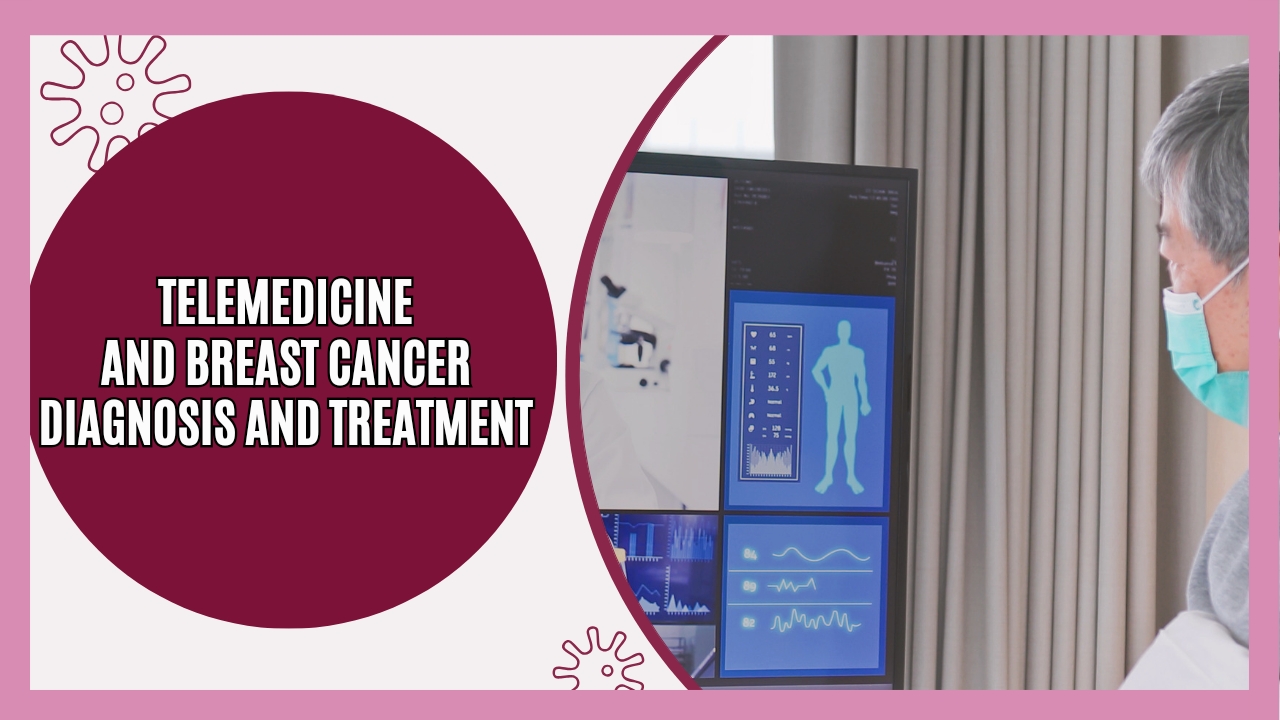Breast cancer remains a significant public health issue globally, and Nigeria is no exception. The prevalence of breast cancer in Nigeria has been on the rise, with many patients facing challenges in accessing timely and effective healthcare. Traditional healthcare delivery methods often fall short due to limited resources, infrastructural deficiencies, and geographical barriers. However, the advent of telemedicine presents a promising solution to these challenges, revolutionizing the diagnosis and treatment of breast cancer in Nigeria. This blog post explores the role of telemedicine in breast cancer care, examining its benefits, implementation challenges, and future prospects.
Understanding Telemedicine
Telemedicine refers to the use of telecommunications technology to provide medical care and services remotely. This includes consultations, diagnoses, treatment plans, and follow-up care. Telemedicine leverages various digital tools such as video conferencing, mobile health apps, electronic health records (EHR), and wearable health devices to connect patients with healthcare providers, irrespective of their physical locations. In the context of breast cancer, telemedicine in breast cancer can facilitate early detection, continuous monitoring, and comprehensive care, addressing critical gaps in the healthcare system.

Benefits of Telemedicine in Breast Cancer Care
- Increased access to specialists: One of the most significant advantages of telemedicine in breast cancer is the ability to connect patients with specialized oncologists and breast cancer experts who may not be available locally. In Nigeria, where specialist healthcare providers are often concentrated in urban areas, telemedicine in breast cancer can bridge the gap for patients in rural and underserved regions. This increased access can lead to earlier diagnosis and more effective treatment plans.
- Timely diagnosis and treatment: Early detection of breast cancer significantly improves treatment outcomes. Telemedicine allows for quicker diagnostic processes through virtual consultations and the sharing of medical images and test results. Patients can receive expert opinions without the need for long-distance travel, reducing delays in diagnosis and the initiation of treatment.
- Continuity of care: Continuous monitoring and follow-up care are crucial for breast cancer patients, especially those undergoing treatment or in remission. Telemedicine in breast cancer enables regular check-ins with healthcare providers, ensuring that any changes in health status are promptly addressed. This continuity of care can improve patient outcomes and quality of life.
- Patient convenience and comfort: Telemedicine in breast cancer offers the convenience of receiving medical care from home, which can be particularly beneficial for breast cancer patients who may experience fatigue and discomfort from traveling. This can lead to increased patient satisfaction and adherence to treatment plans.
- Cost-Effectiveness: Reducing the need for travel and in-person visits can lower healthcare costs for both patients and providers. Telemedicine in breast cancer can also optimize the use of healthcare resources, allowing for more efficient management of patient loads and reducing the burden on healthcare facilities.
Implementation Challenges in Nigeria
While the benefits of telemedicine in breast cancer are clear, several challenges must be addressed to fully realize its potential in breast cancer care in Nigeria:
- Infrastructure and connectivity: Reliable internet access and telecommunications infrastructure are essential for telemedicine. Many regions in Nigeria, particularly rural areas, still lack adequate connectivity, which can hinder the implementation of telemedicine services. Investments in improving internet access and infrastructure are crucial.
- Technical literacy: Both healthcare providers and patients need to be proficient in using telemedicine technologies. Training programs and educational initiatives are necessary to ensure that all stakeholders can effectively utilize telemedicine platforms.
- Regulatory and legal issues: The regulatory framework for telemedicine in Nigeria is still evolving. Clear guidelines and policies are needed to address issues such as patient privacy, data security, and the legal aspects of remote consultations. Ensuring compliance with these regulations is essential for the safe and effective use of telemedicine.
- Cultural acceptance: Cultural attitudes and perceptions towards telemedicine in breast cancer can influence its adoption. Some patients may be hesitant to embrace remote consultations due to a preference for traditional face-to-face interactions. Public awareness campaigns and education can help to shift these perceptions and promote acceptance.
- Resource availability: The availability of digital tools and equipment, such as smartphones, computers, and wearable devices, is necessary for telemedicine. Ensuring that patients and healthcare providers have access to these resources is critical for the successful implementation of telemedicine services.
Future Prospects and Recommendations
The future of telemedicine in breast cancer care in Nigeria holds great promise. To fully harness its potential, several steps can be taken:
- Investment in infrastructure: Improving internet connectivity and telecommunications infrastructure, particularly in rural areas, is vital. Public-private partnerships and government initiatives can play a significant role in achieving this.
- Capacity building: Training programs for healthcare providers and educational initiatives for patients can enhance technical literacy and confidence in using telemedicine technologies. Healthcare institutions can collaborate with technology providers to offer these programs.
- Regulatory framework: Developing and implementing comprehensive regulations and guidelines for telemedicine in breast cancer can address legal and ethical concerns. This includes ensuring patient data privacy, establishing protocols for remote consultations, and defining the roles and responsibilities of healthcare providers.
- Public awareness campaigns: Educating the public about the benefits and safety of telemedicine in breast cancer can promote acceptance and encourage more patients to utilize these services. Success stories and testimonials can be powerful tools in these campaigns.
- Integration with traditional healthcare: Telemedicine should complement, not replace, traditional healthcare. Integrating telemedicine services with existing healthcare systems can provide a hybrid approach that maximizes the strengths of both modalities.
Conclusion
Telemedicine has the potential to revolutionize breast cancer care in Nigeria by increasing access to specialists, enabling timely diagnosis and treatment, ensuring continuity of care, and offering convenience and cost savings. However, addressing the challenges of infrastructure, technical literacy, regulatory issues, cultural acceptance, and resource availability is crucial for its successful implementation. By investing in these areas and fostering a supportive environment, telemedicine can significantly improve breast cancer outcomes and enhance the overall healthcare landscape in Nigeria. The journey towards this transformation is ongoing, but the promise of telemedicine offers hope for a brighter future in breast cancer care.
REFERENCES
ASCO Publications – https://ascopubs.org/doi/10.1200/EDBK_200141
Assessed July 1st, 2024



What do you think?
It is nice to know your opinion. Leave a comment.